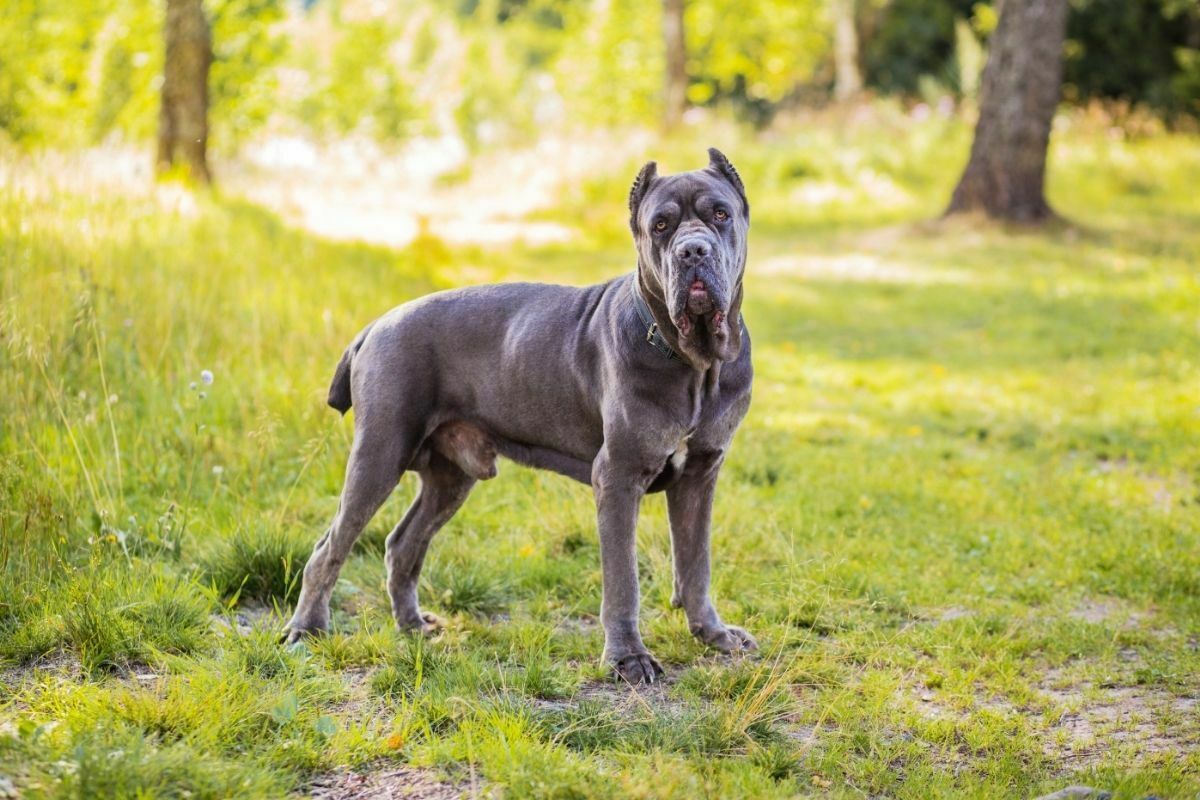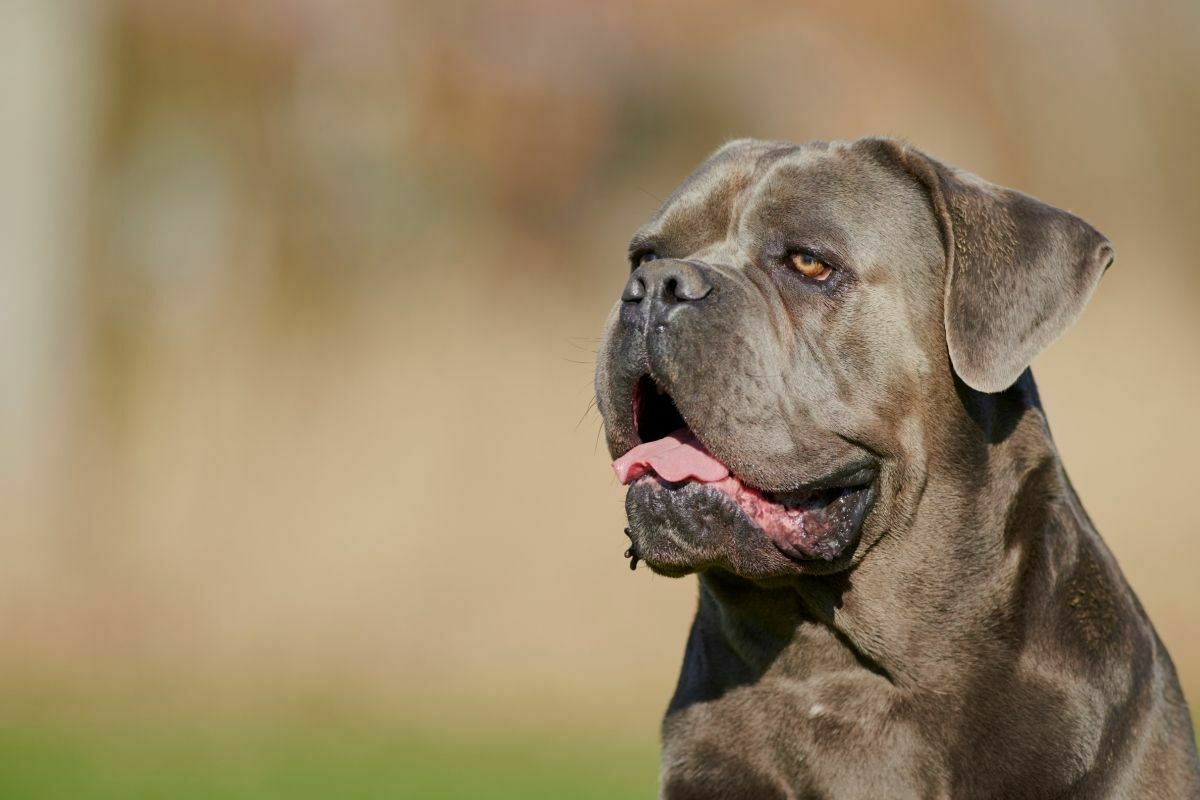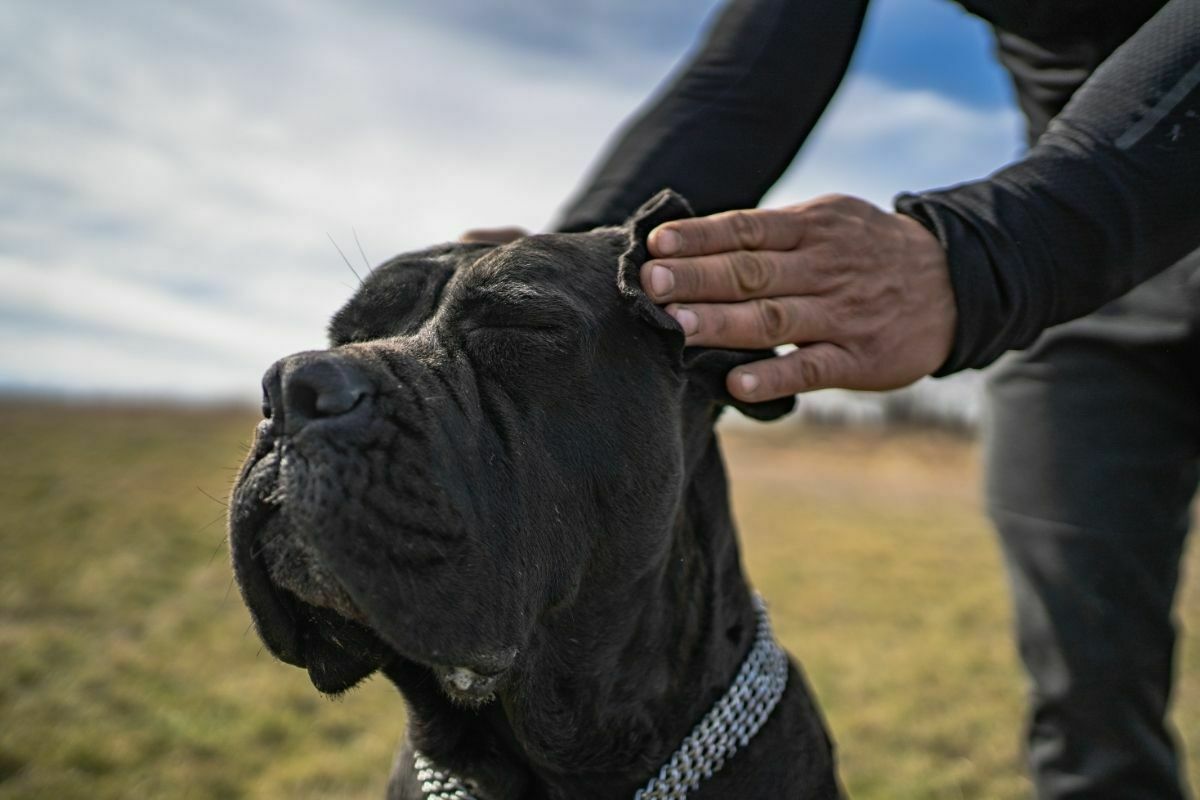Cane Corsos are a popular and beautiful dog breed, but do they cause problems for those that struggle with pet allergies?

We are going to be taking a look at some general facts about the Cane Corso as well as whether they can be considered a hypoallergenic dog breed. Let’s take a look.
The Cane Corso
The Cane Corso is a large, powerful dog breed that originated in Italy. This dog is also referred to as the “Italian Mastiff”, being one of the most well-known Italian breeds of dog.
The name Cane Corso comes from the Latin word cuniculus, which means “hog-dog”. The Cane Corso was developed over many years to help farmers protect their livestock from predators such as wolves, bears, and other dangerous game.
They were also bred to be extremely strong and fast so they could chase down these animals. Because of this, the Cane Corso is considered to be a working dog with strong protective instincts that make for excellent companions as well as efficient guard dogs.
Today, the Cane Corso is still used to hunt wild boars, but they are now primarily a pet. The Cane Corso has become very popular among people because of their friendly nature and personality, known for being intelligent, loyal, affectionate, protective, and obedient.
Appearance
The Cane Corso is a large and muscular dog that stands between 22 – 28 inches tall, with an average weight of about 100 pounds. This muscular frame is made up of long legs, broad shoulders, and a deep chest.
They also have a short muzzle and flat ears that hang low on the sides of the skull, alongside a tail that is set high up on their back and is carried close to the body.
Now that we know a little more about the Cane Corso, let’s take a look at some of the leading causes of dog allergies in humans.
What Causes People To Have Dog Allergies?
Dog allergies in humans can be caused by several different factors. One of the most common reasons for people having dog allergies is exposure to dog dander.
Dander is a combination of dead skin cells and hair that comes off of your dog when he or she sheds. When you pet a dog, dander might attach itself to you in your pet’s loose hair, leading to an allergic reaction.
Another reason that people can become allergic to dogs is because of the proteins that are found in their saliva. Saliva contains enzymes called amylase and protease. These two enzymes are known for breaking down food for digestion.
If you come into contact with your dog’s saliva,- such as when they lick you- then you will be exposed to these enzymes, which might cause an allergic reaction.
The bacteria that live in your dog’s mouth is another allergen that can cause reactions in humans. Bacteria in a dog’s mouth produce histamine in the stomach. Histamines are chemicals that are released by the immune system to fight infections.
Histamines mean well, but they cause a plethora of reactions- such as running eyes, a sore throat, and wheezing- in an attempt to get the infection out of your body as quickly as possible.
Because of this, histamines can actually make you sick as they try to protect you, potentially causing allergies (hence why some allergy medications are known as antihistamines!).
There are also certain people that are more prone to developing allergies to dogs than others. For example, if you have asthma, hay fever, or any other kind of allergy, then your chances of having a problem with dogs are higher than someone without these conditions.
Reducing Allergies To Dogs
If you have been diagnosed with dog allergies, there are ways that you can reduce your risk of getting a reaction when exposed to a dog. One way to do this is to avoid contact with dogs until after you’ve had your allergy medication.
Another thing that you can do is to make sure that you don’t let your dog lick you, especially not on the face. You should also wash your hands thoroughly before petting or handling your dog.
As hard as it might be, if your allergies are particularly severe, then it might be best to try to limit the time spent around your dog. It may also help to leave your dog alone when your allergies are acting up, and you are feeling particularly ill.
Finally, consider keeping your dog indoors during the heavy pollen season. This will prevent pollen- which many people are allergic to from sticking to their coats and being brought into the home.
Is The Cane Corso A Hypoallergenic Dog Breed?

It is important to understand that some people with allergies can become sensitive to certain breeds of dogs. For example, if you suffer from eczema or hay fever, a dog that sheds hair excessively might cause a flare-up of these kinds of allergies.
That being said, there are several reasons why the Cane Corso may be a good choice for someone who suffers from allergies. First, the Cane Corso is not a very hairy dog, sporting a short and smooth coat.
Many people find that a dog that sheds less than once every three months is easier to care for, especially for those with allergies.
Also, because the Cane Corso rarely sheds, their coats won’t need to be maintained quite as often as a long-haired breed and so contact with the allergens in the coat is reduced.
Typically, a Cane Corso’s coat will only need to be brushed and groomed about twice per month.
The Cane Corso has a relatively low amount of allergens in its saliva. Although many dog breeds have high levels of salivary proteins, the saliva of the Cane Corso only contains trace amounts.
In fact, one study showed that the Cane Corso had the lowest level of salivary proteins of all the breeds tested!
So, whilst the Cane Corso isn’t necessarily a completely hypoallergenic dog breed, they certainly seem like they could be a good option as a pet for someone with allergies.
How To Make Your Cane Corso A More Hypoallergenic Breed

If you decide on a Cane Corso as a pet- even if you have allergies- there are some things you can do to reduce any symptoms that you might have. Let’s take a look at some.
Protect Your Skin
Since most allergic reactions to the Cane Corso appear in the form of skin irritations due to their fur, protecting your skin from dander can also protect you from pet allergies. Wear long sleeves when playing with your dog, and wash your hands before and after to keep your skin protected.
Regular Grooming
Regularly grooming your Cane Corso will help to get rid of the allergens in their coat. However, make sure that you do so outside the house to avoid all of that hair and dander spreading around inside your home.
When it comes to bathing your Cane Corso, you can always use hypoallergenic shampoos to cut back on allergens.
These shampoos are designed specifically to remove these allergens from your dog’s skin without drying it out. Make sure to use this kind of shampoo to decrease the amount of dander in your Cane Corsos coat and make both you and your pet healthier and happier!
Diet
The diet of your dog can affect the health of their coat, so try out different diets to see which one works for your dog and their coat. If you have any queries or are unsure of what to feed your Cane Corso, always check with the vet.
A suggestion for a healthy and sleek coat that is less likely to produce dander in your Cane Corso is a RAW diet.
Build Your Immune System
Many new owners who have allergic reactions to their dogs at first will sometimes say that they are able to build a level of immunity after some time due to their body adjusting.
Gauge your reaction to your Cane Corso over time to see if you are able to build a level of natural immunity, but don’t keep trying if you find that your allergies aren’t getting any better!
Wipe Their Coat
Another way to remove some of the allergens on your Cane Corso’s coat is by using baby wipes. All you need to do is use them to wipe over your dog’s coat.
You can do this more frequently than bathing them, as bathing your dog too much can remove some of the natural oils in the coats that keep them smooth and healthy.
Baby wipes can help to reduce the number of allergens on your dog’s skin without removing these essential, natural oils. It is also much quicker than bathing, taking only a few minutes to do so.
Make sure you don’t replace bathing with this cleaning method! Maintain a good balance between bathing and wipes to get the best results.
Allergy Medication
There are various allergy medications and antihistamines that can be used to alleviate some of the symptoms and negative reactions you are experiencing, but make sure that you consult your doctor beforehand.
Final Thoughts
There are many factors that contribute to whether or not an individual becomes allergic to a particular animal.
However, if you are determined to own a Cane Corso and you are someone who suffers from pet allergies, then you must make sure that you take proper precautions to ensure that your dog does not cause you any problems.
That being said, the Cane Corso is a breed that is less likely to cause an allergic reaction than others due to its short coat, manageable dander, and lack of allergens compared to some breeds.
Whilst no canine is technically an entirely hypoallergenic breed of dog, the Cane Corso is certainly relatively close to being so!
